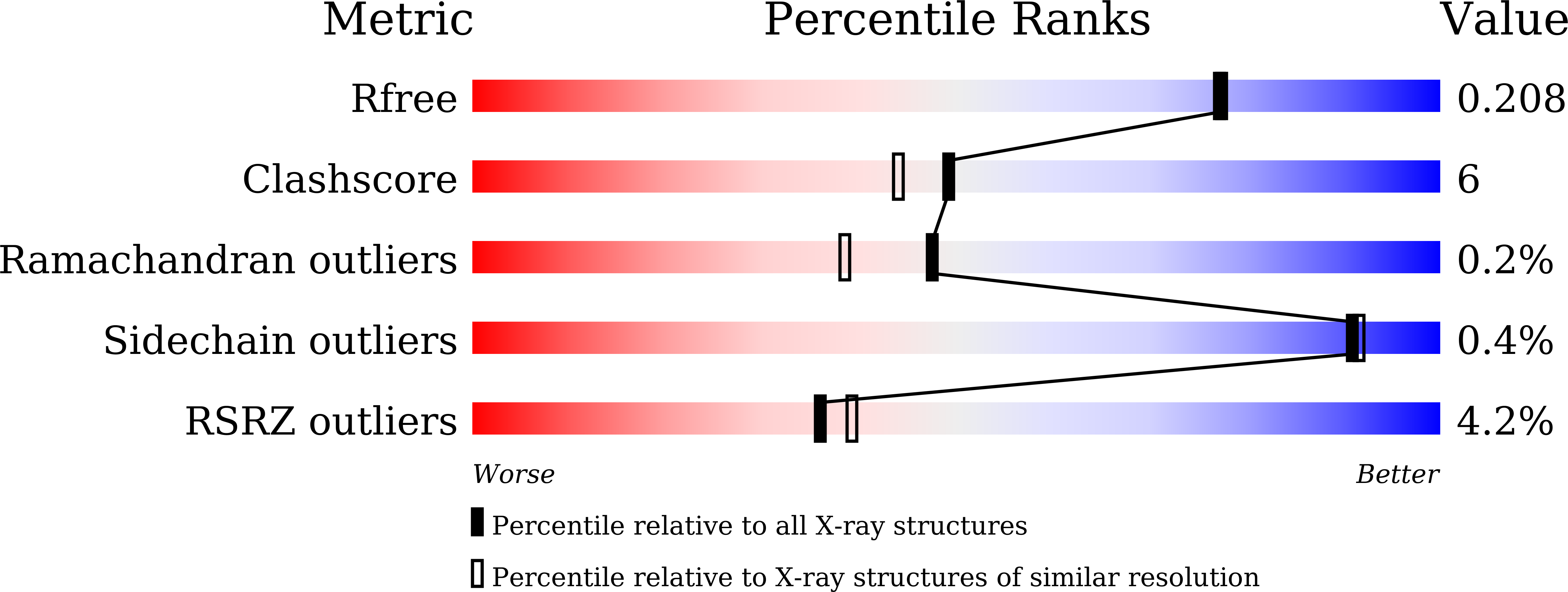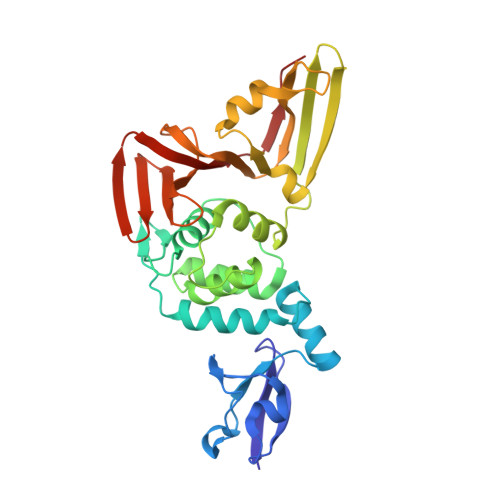High-throughput screening identifies established drugs as SARS-CoV-2 PLpro inhibitors.
Zhao, Y., Du, X., Duan, Y., Pan, X., Sun, Y., You, T., Han, L., Jin, Z., Shang, W., Yu, J., Guo, H., Liu, Q., Wu, Y., Peng, C., Wang, J., Zhu, C., Yang, X., Yang, K., Lei, Y., Guddat, L.W., Xu, W., Xiao, G., Sun, L., Zhang, L., Rao, Z., Yang, H.(2021) Protein Cell 12: 877-888
- PubMed: 33864621
- DOI: https://doi.org/10.1007/s13238-021-00836-9
- Primary Citation of Related Structures:
7D7K, 7D7L - PubMed Abstract:
A new coronavirus (SARS-CoV-2) has been identified as the etiologic agent for the COVID-19 outbreak. Currently, effective treatment options remain very limited for this disease; therefore, there is an urgent need to identify new anti-COVID-19 agents. In this study, we screened over?6,000 compounds that included approved drugs, drug candidates in clinical trials, and pharmacologically active compounds to identify leads that target the SARS-CoV-2 papain-like protease (PLpro). Together with main protease (M pro ), PLpro is responsible for processing the viral replicase polyprotein into functional units. Therefore, it is an attractive target for antiviral drug development. Here we discovered four compounds, YM155, cryptotanshinone, tanshinone I and GRL0617 that inhibit SARS-CoV-2 PLpro with IC 50 values ranging from 1.39 to 5.63 ¦̀mol/L. These compounds also exhibit strong antiviral activities in cell-based assays. YM155, an anticancer drug candidate in clinical trials, has the most potent antiviral activity with an EC 50 value of 170 nmol/L. In addition, we have determined the crystal structures of this enzyme and its complex with YM155, revealing a unique binding mode. YM155 simultaneously targets three "hot" spots on PLpro, including the substrate-binding pocket, the interferon stimulating gene product 15 (ISG15) binding site and zinc finger motif. Our results demonstrate the efficacy of this screening and repurposing strategy, which has led to the discovery of new drug leads with clinical potential for COVID-19 treatments.
Organizational Affiliation:
Shanghai Institute for Advanced Immunochemical Studies and School of Life Science and Technology, ShanghaiTech University, Shanghai, 201210, China.




















